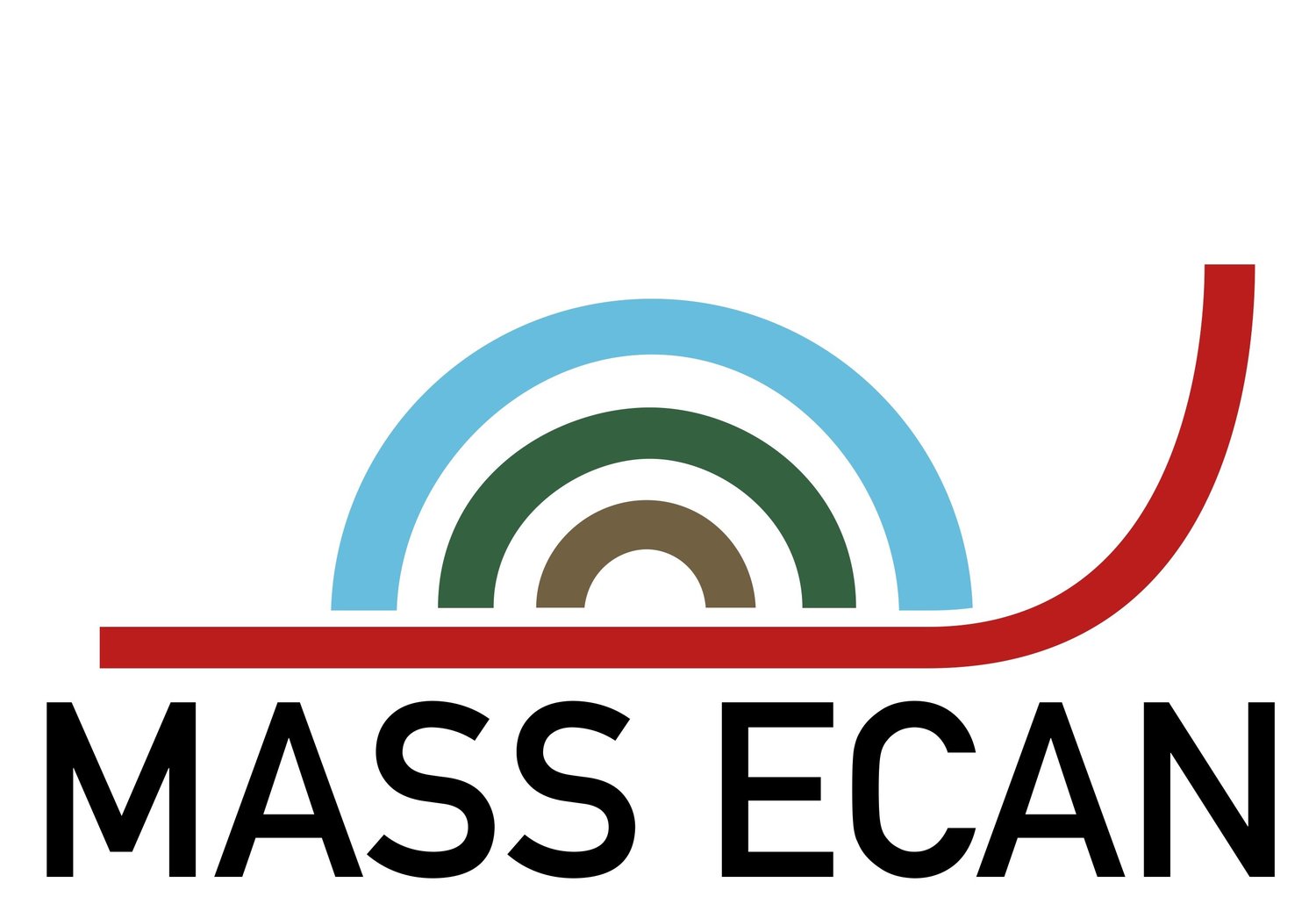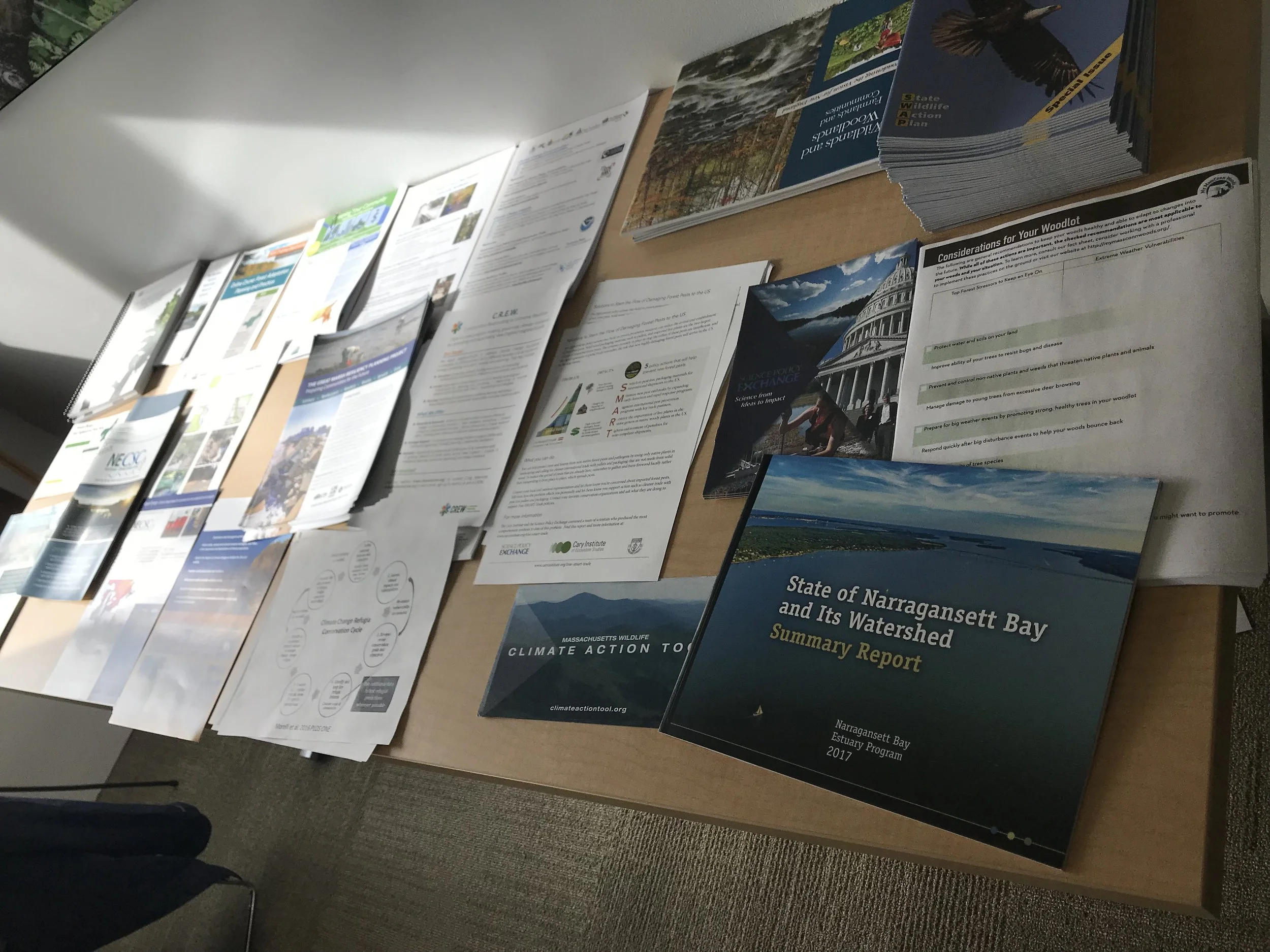Climate adaptation actions that respond to climate change impacts can be categorized across a spectrum of Resistance, Resilience, and Transformation (RRT). We are pleased to share a new resource: Adaptation Actions for Resistance, Resilience, and Transformation. This resource provides an overview of climate adaptation actions across a spectrum of categories, and now includes example projects in specific ecosystems. Whether you are new to climate adaptation or a seasoned practitioner looking to better understand where your work fits into the bigger picture, we hope this RRT framework helps you achieve your objectives in response to climate change. Understanding the universe of options can help us better match our actions to our desired outcomes.
The overview was created through the collaboration of Mass ECAN, the Northeast Regional Invasive Species & Climate Change (RISCC) Management Network, and the Northeast Climate Adaptation Science Center, and the examples actions were created with too many partners to list here (look for their logos on each page)! Thanks for support from the UMass Center for Agriculture, Food and the Environment. Check it out here to learn more!
Active transformation: Mass ECAN members plant floodplain forest tree species that are adapted to future climate conditions at Mass Audubon’s Arcadia Wildlife Sanctuary in Northampton, MA.
Photo credit: Olivia Douhan




